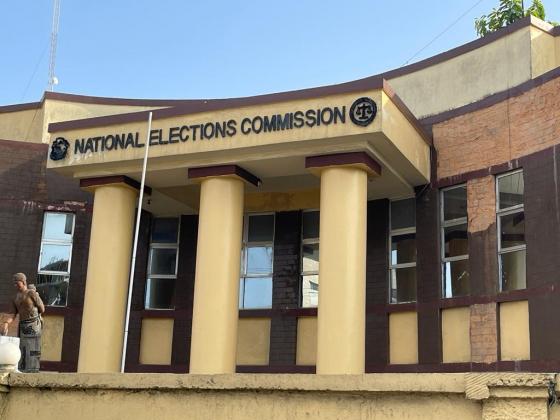Liberia: Voter Registration Suffers More Setbacks

.... “LAXTON Group Limited has highly recommended the use of laptops instead of tablets. The laptops can be subsequently redeployed after the Voter Registration process. It is more durable and can easily be repaired,” the Dutch company told NEC in a meeting on Dec 1."
The National Elections Commission has been warned that the use of tablets for the 2023 voter registration exercise might face some serious setbacks if it sticks with the demand.
The warning from LAXTON runs contrary to the NEC bid document, which stipulated clearly that the country’s first biometric voter registration exercise would be conducted using tablets. The Dutch Company had applied for the NEC contract for the supply of biometric voter registration equipment and software using the terms and conditions of the bid document but weeks after winning, the issue of tablets is now out of the question.
According to LAXTON, the use of rugged biometric tablets as required would create hurdles, saying laptops are more “durable and easy to repair.”
“LAXTON Group Limited has highly recommended the use of laptops instead of tablets. The laptops can be subsequently redeployed after the Voter Registration process. It is more durable and can easily be repaired,” the Dutch company told NEC in a meeting on Dec 1."
“Additionally, more records can be captured using the laptop as compared to the tablet. LAXTON will be working on a very tight schedule and has advised that a laptop be used if the Commission should achieve its objectives. The group is definitive about what is possible.”
The meetings were attended by Daniel Engelrecht, Andre Olivier, and Sam Abinon representing the Dutch Company. Nick Perkins, the company President for Africa, and fiscal person on the NEC project also attended one of the meetings. The company added that they are expected to work on a very tight schedule, as such, laptops are used if the NEC intends to achieve its objectives in conducting the 2023 poll.
LAXTON
LAXTON also informed NEC that it will take up to 90 days to deliver goods in the country, including 10 days to assemble and hand over, saying they are definitive about what is possible. The Dutch company added that production of the equipment and materials will be done within 60 days and that if the contract had been signed on December 12, the equipment would have been completed and delivered by March 12, 2023.
“As the kits are ready, they can be distributed immediately within the 10 days to speed up movement in the county. This means if the contract was signed on December 12, all of the goods should be completed and delivered to the registration centers by March 12, 2023, “ LAXTON said in a meeting with the NEC.
“This means that registration could start from March 13, 2023, or at a later date. Note that the time is extended when the signing date of the contract is prolonged.”
The dilemma facing the electoral body comes after it allowed LAXTON to participate in the bidding using laptops instead of the rugged biometric tablets as required in the binding documents. LAXTON's use of laptops, according to the NEC Chair, Davidetta Browne Lansanah, was considered a failure of the demonstration process.
Lansanah, at a press conference on October 25, also claimed that Laxton lacks the capacity to pre-finance, a major requirement under the public procurement law and as reflected in NEC’s bid document, too. But after the Public Procurement and Concession Commission ordered an evaluation of the bid, the Dutch company then emerged as the most responsive bidder despite using the same laptop.
The reevaluation came after the NEC had failed to convince the PPCC that EKEMP, a Chinese company, which had earlier won the bid was qualified to do the job as requested.
EKEMP lost the right to the bid after PPCC withheld its grounds, denying the electoral body’s request for no objection twice. This was based on EKEMP’s inability to print the PVC card on the spot as required by the NEC, and within time, which showed uncertainty about the usage of its equipment and raised doubts about its effectiveness.
Meanwhile, LAXTON had also claimed that the setting up of the data center or central management System at NEC would take up to eight or ten weeks, provided that the contract had been signed on December 12.
“LAXTON has already started investing in the production of equipment and software even ahead of the issuance of an award letter and contract, but further progress can be made if these are consummated,” the company said. “We support data capturing and that it will print the BVR PVC cards on the spot. “
Laxton has also said that NEC is responsible for designing its own voter’s card and includes artwork, security features, and QR codes, among others.
Pre-financing
LAXTON, according to sources at NEC, had declined to pre-finance the job, calling on NEC to deposit the US$12 million in an escrow account “so that after delivery of the materials and software, it takes charge of the amount in the account.
“LAXTON notes that all of these can only be achieved if the signing of the contract and the issuance of a letter of credit by a commercial bank is done,” the company said.
NEC made mandatory in its bid document the requirement for pre-financing but the company is now twisting the Commission’s hand to fall short of its provisions in its bid document.
